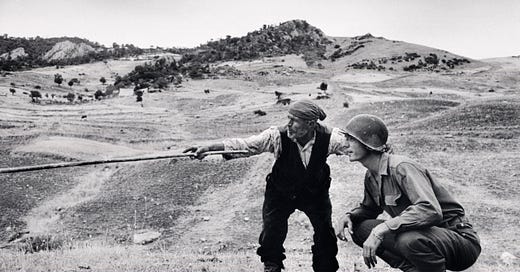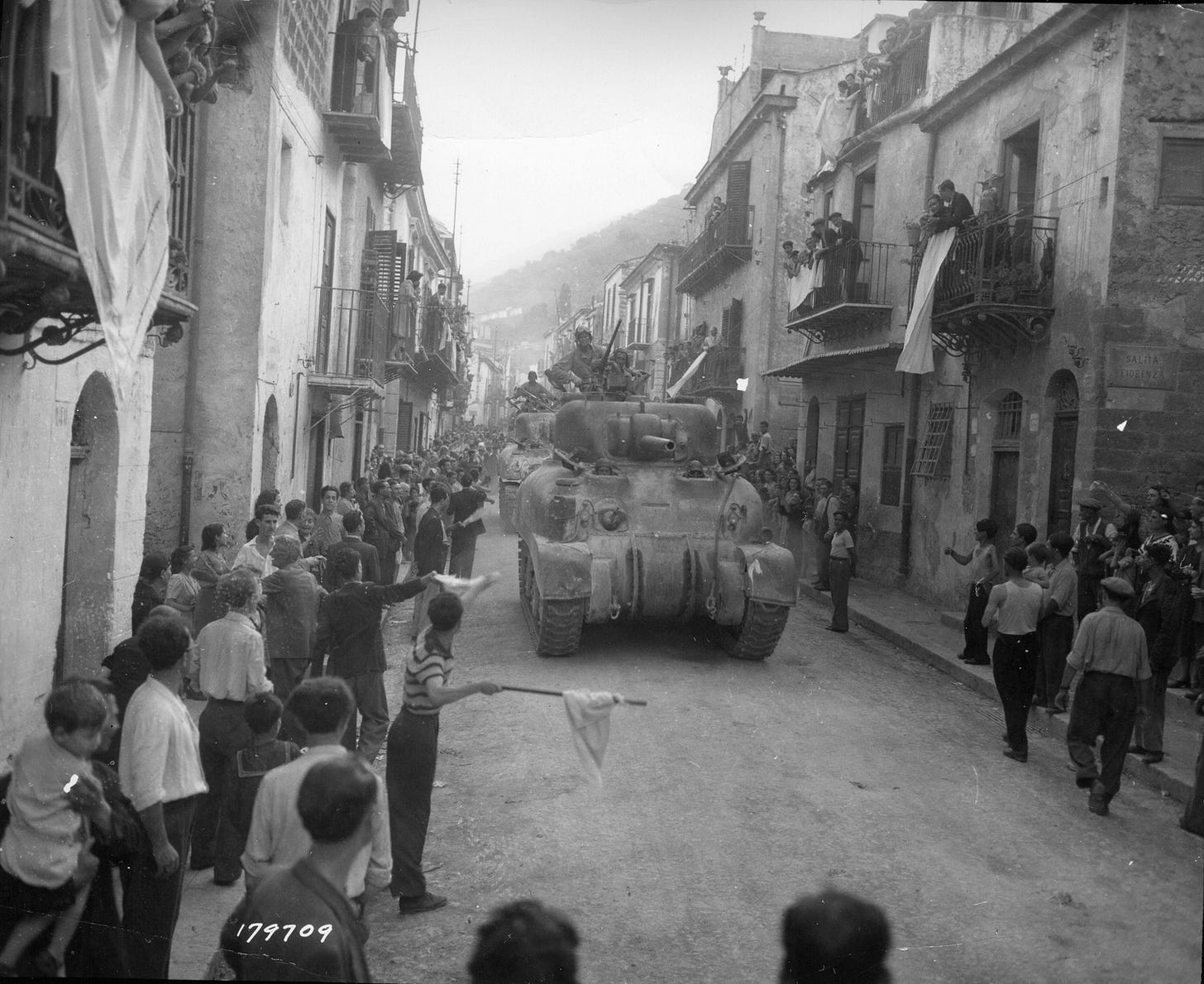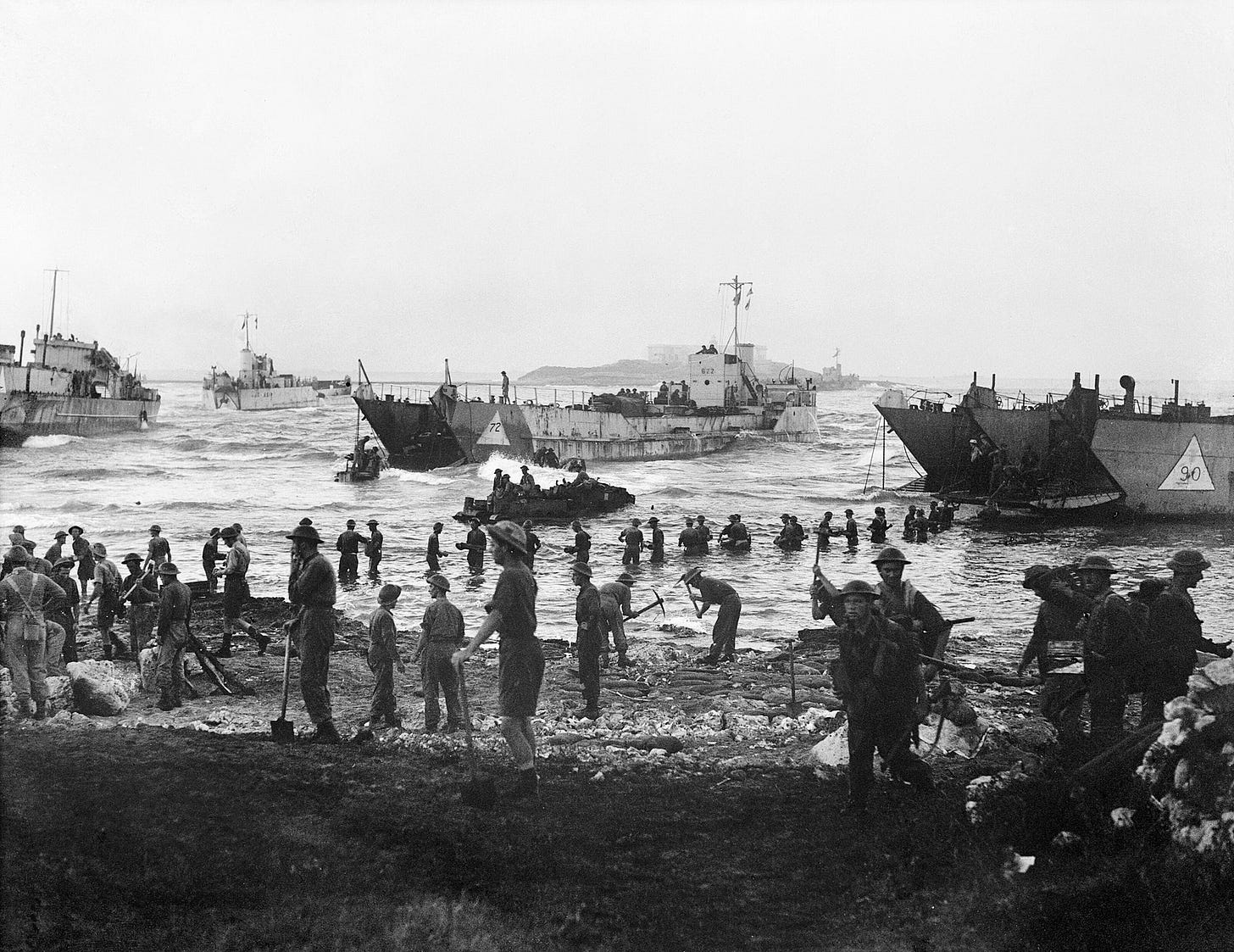Covert Crusade: How the Mafia Helped Free Sicily
the hidden alliance between the Allied forces and Sicilian mobsters during the 1943 invasion
"In war, truth is the first casualty."
- Aeschylus
The Allied invasion of Sicily in July 1943 proved to be the turning point in World War II, though another unlikely alliance was created behind the scenes, which set the stage for victory. While the Allied forces were making landfall and going through the Sicilian countryside, their unlikely allies — the Sicilian Mafia — were working in the shadows. This clandestine partnership was to play a key role in the quick capture of Palermo and eventually in the fall of Mussolini's fascist regime.
The Mafia’s Vendetta
The roots of this unlikely alliance went back to Mussolini's ascendance to power. In an attempt to retain full control, the fascist dictator began to fight a campaign of terror against the Mafia, considering them as opponents to his power. The "Iron Prefect," Cesare Mori, was assigned the task of breaking Mafia control of Sicily. His brutal methods sent a number of mobsters either into exile or underground, which simply brewed the embitterment that was to boil over in later years.
Recognizing that local topographical knowledge and that of the network could potentially be very valuable, the Allied forces were planning Operation Husky — the invasion of Sicily. Out of left field, but not entirely unrelated, was the godsend in the form of Charles "Lucky" Luciano, the famed Italian-American gangster serving a jail term in the United States of America. In return for a reduced sentence, Luciano managed to make a deal to use his links with the Sicilian Mafia for the benefit of the Allied forces. Who were the key players in this shadowy alliance, and how did they contribute to the Allied victory?
Also key to the Allied effort was Mafia boss Calogero Vizzini, who had links with the highest circles of power in Germany. Information gained from him and others was crucial in intelligence about Axis troop movements and worked both as guides to the treacherous Sicilian landscape for Allied forces and had even secured en masse surrenders of some Italian units. Their ability to guide the Allied forces through the tough Sicilian terrain made them very useful for the quick advance.
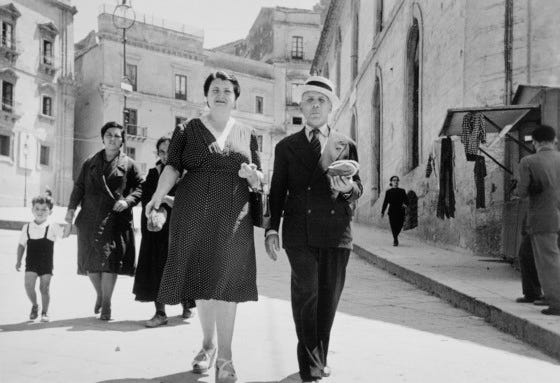
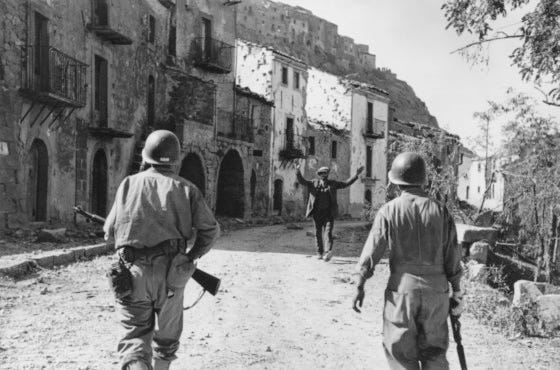
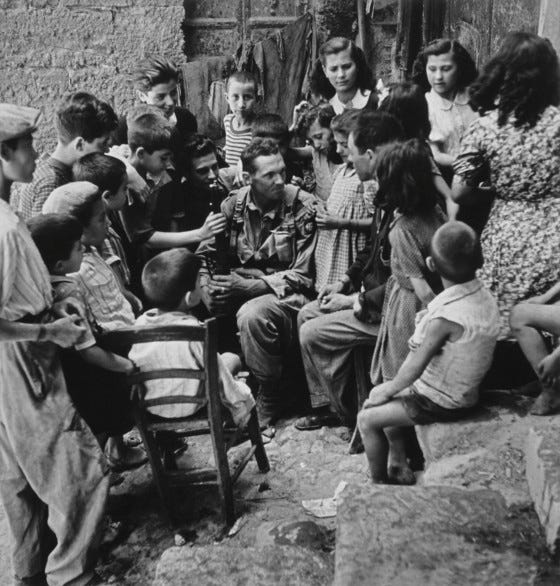
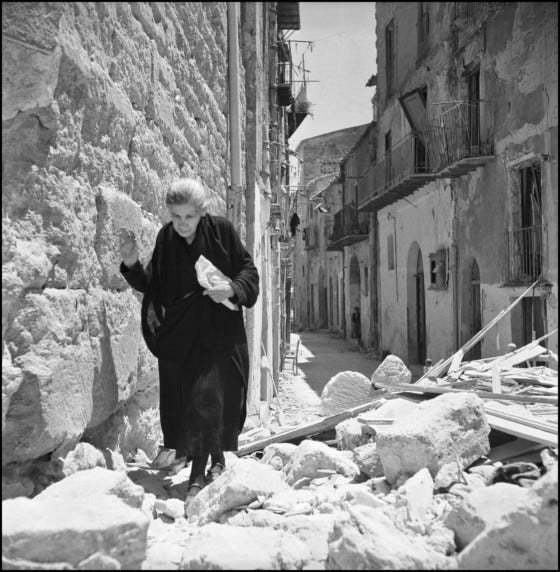
Operation Mincemeat: The Corpse That Fooled Hitler
While the Mafia operated under the shadows, their shrewdness in misleading the Axis forces was adopted by the Allies. A renewed chutzpah in this war trickery is seen through Operation Mincemeat. British intelligence planned faked documents related to Allied plans, which were planted on the corpse of a drowned supposed Royal Marines officer. The Allied landings then would target Greece and Sardinia but not Sicily.
The deception was masterfully constructed. German intelligence was convinced to leave fewer resources in defense of Sicily. The diversion, strategically set in place, allowed the Allied forces to stage an assault on the island in the early morning of July 10, 1943, causing resistance to be a mere shadow of what might have been, making a quick advance across the island possible.
Blitzkrieg: Patton's Race for Palermo
At the front of this lightning campaign was General George S. Patton in command of the U.S. Seventh Army. Patton's tactics were extremely aggressive and he also applied elaborate psychological warfare to leave enemy troop demoralized, while at the same time speeding up the Allied advance. Flamboyant in style and absolutely fearless, Patton made it a habit to place himself in visible and dangerous parts of the battlefield — an act that proved to be very inspirational and motivated his troops to an unrelenting drive forward.
At Gela, Patton is famously said to have, despite enemy fire, waded ashore, a brazen act that served to galvanize his men and establish the tone for the campaign. His raw treatment of prisoners and explicit instructions for no quarter served to instill further fear in Axis troops, weakening their will to resist.
Thanks to Patton's blitzkrieg style of attack, abetted by the disorganized Italian military and covert aid from the Mafia, he was able to capture Palermo in record time. Within 12 days — from July 10 to July 22 — the Allied forces covered the length of Sicily, taking the capital which severely reduced Axis powers in the island.
Patton and the Mafia: An Uneasy Alliance
While his military prowess was unquestionable, Patton almost certainly could not have achieved his successes in Sicily without the covert support of the Mafia. There is no documented evidence that either man met personally, but the influence of Lucky Luciano filtered down through various channels. It was the extensive access Luciano provided to intelligence gathering and local cooperation that indirectly supported Patton's brilliant plan in hopping through the Sicilian territory.
While it is unlikely that he was in on all of the details of the affair, Patton definitely knew enough about the unusually cooperative local population and just how readily his forces moved around the tangled Sicilian countryside. That tacit collaboration exposes the moral ambiguities of the warfare in which military necessity generally trumps ethical consideration. Given Patton's pragmatic concerns with accomplishing his mission, he would likely have seized any available advantage — no matter how received — in his ruthless push on Palermo to pave the way for the Allied conquest of Sicily.
Il Duce Falls: The Domino Effect on Palermo
The fall of Palermo had effects far beyond the shores of Sicily. It was to presage the end for Mussolini's fascist regime in Italy. On July 25, 1943 —j ust three days after Palermo fell — the Italian Grand Council of Fascism voted to depose Mussolini. The arrest of the dictator was immediate, and with that, Italy's stand in the war dramatically turned around.
This political upheaval still further weakened the Axis position in Italy and paved the way for the Italian armistice with the Allies on September 3, 1943. The swift success of the Sicilian campaign, which the covert assistance of the Mafia had made possible, set in train that series of events destined to change the course of the war in the Mediterranean theatre.
This is a confounding chapter in the history of World War II, and it just tells us that fact can be stranger than fiction. The alliance of the Sicilian Mafia with the Allied forces proves that old saw: "The enemy of my enemy is my friend."
Recommended readings:

